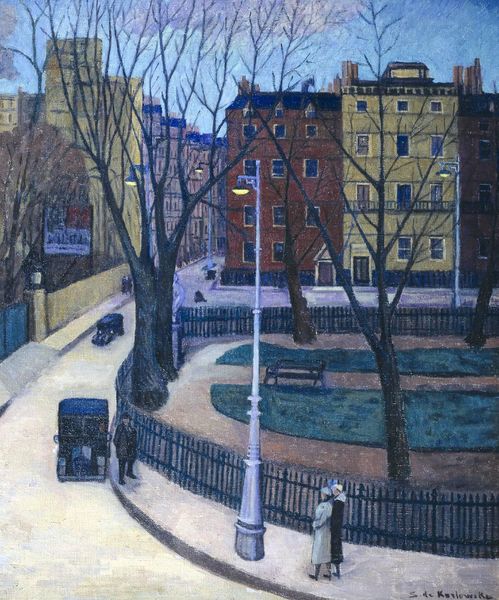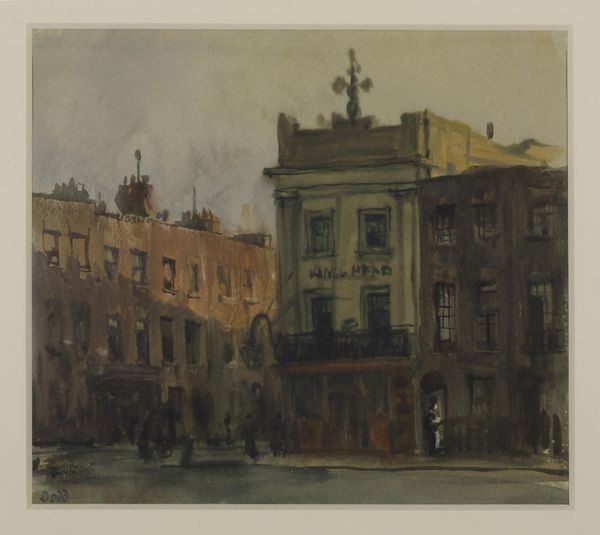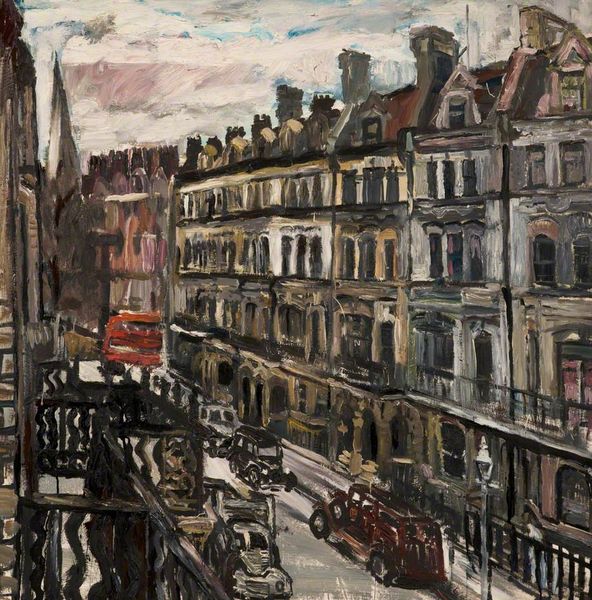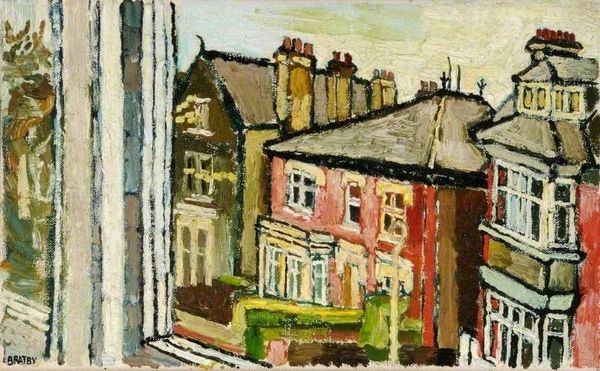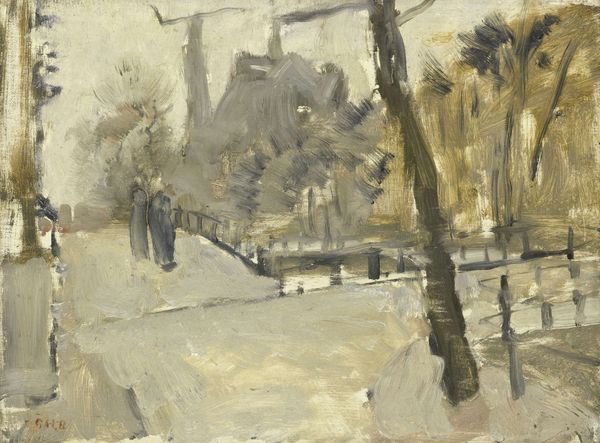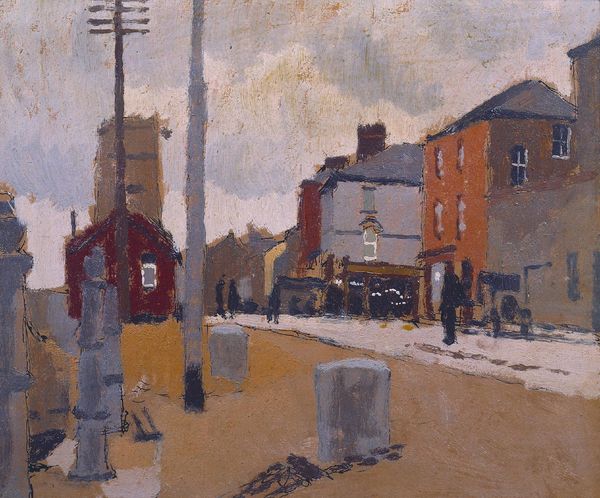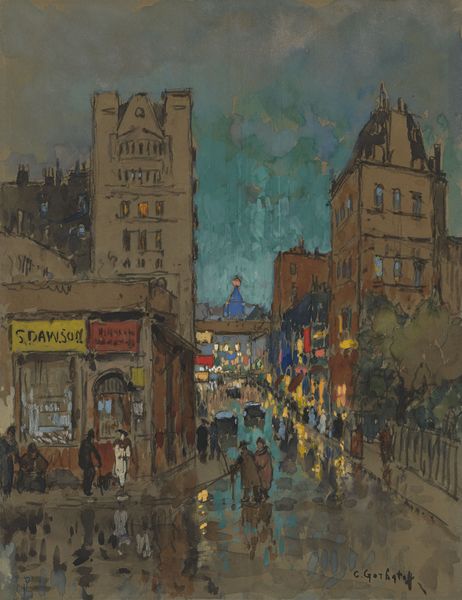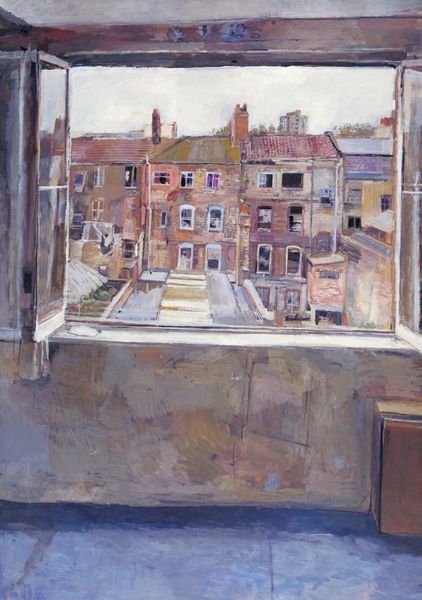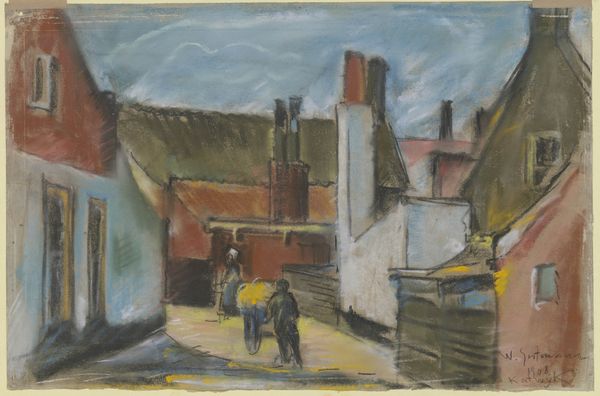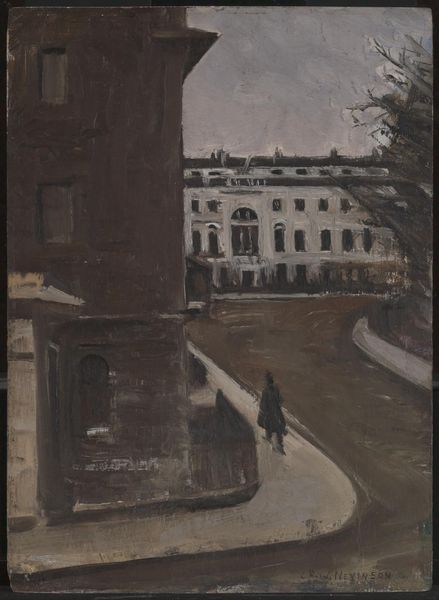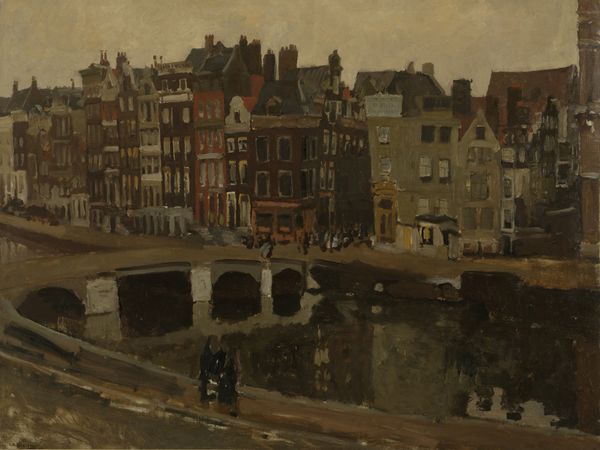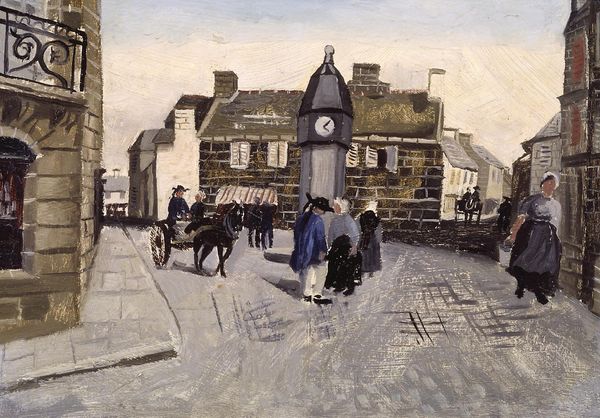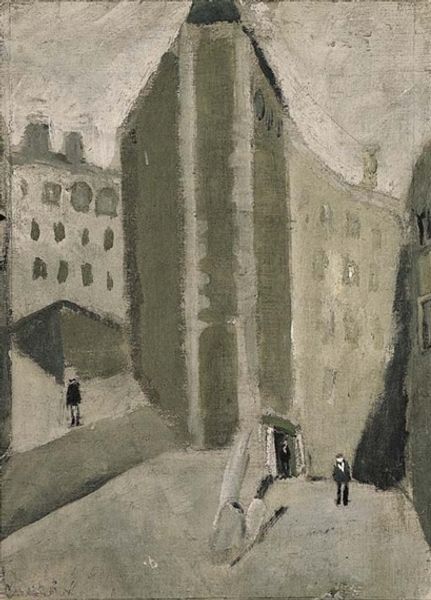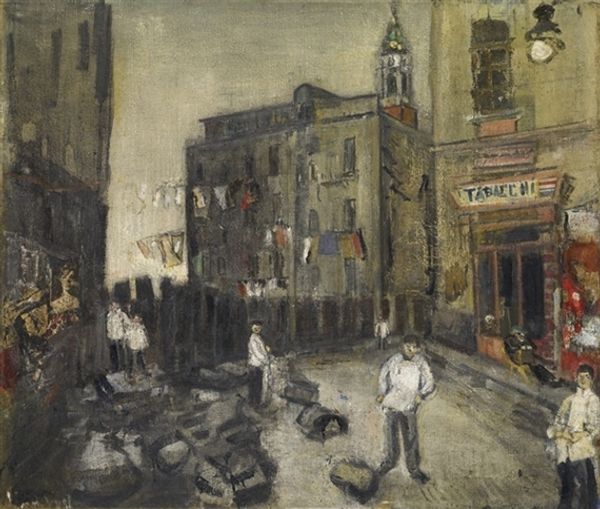
Dimensions: support: 1003 x 1486 mm
Copyright: © Tate | CC-BY-NC-ND 4.0 DEED, Photo: Tate
Curator: This is Christopher Chamberlain's "The Dangerous Corner," held here at the Tate. It’s quite a large piece, over a meter wide, painted on canvas. Editor: Gloomy, isn't it? A study in subdued greys and browns, like a washed-out memory. The composition feels unresolved, everything leading towards an unseen vanishing point. Curator: Indeed. Chamberlain, born in 1918, often depicted urban scenes. He captures a particular postwar atmosphere, perhaps of austerity or quiet desolation, using somber tones to evoke a sense of melancholy. Editor: Note how the streetlamps are almost anthropomorphic, stoic figures lining the road. But I'm curious about that splash of red deep within the building at the corner. Is it a sign of danger, or perhaps just a vestige of vitality? Curator: It’s an enigmatic touch, certainly, and contributes to the painting’s overall unease. Chamberlain offers us a glimpse into a world where beauty and danger coexist, subtly urging us to look beneath the surface. Editor: It's a disquieting corner, alright, but the quietness also holds a strange power—a muted reflection on urban life and maybe, just maybe, something stirring underneath.
